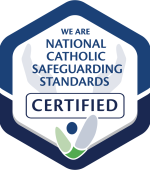Home » Redress
The Royal Commission into Institutional Responses to Child Sexual Abuse reported on questions of redress and provision of compensation through civil litigation, stating:
Because of the nature and impact of the abuse they suffered, many victims of child sexual abuse have not had the opportunity to seek compensation for their injuries that many Australians generally can take for granted. While it cannot now be made feasible for many of those who have experienced institutional child sexual abuse to seek common law damages, there is a clear need to provide avenues for survivors to obtain effective redress for this past abuse.
Redress and Civil Litigation Report (p.4)
The Diocese of Maitland-Newcastle recognises the importance of providing a range of possible options for people affected by child sexual abuse pursuing some redress for harm caused to them. In general terms, there are four options available to a person who suffered child sexual abuse within the Diocese, each of which has different aspects.
Pursuing redress does not exclude a person affected by child sexual abuse seeking healing and support services. If a person wants more information about accessing healing and support services:
The Diocese is a member of the National Redress Scheme (NRS), which:
The Australian Federal Department of Human Services operates the NRS as an independent process. It began on 1 July 2018 and will run for 10 years.
If a person wants more information about the National Redress Scheme:
In 2010, the Diocese established voluntary protocols available to people affected by child sexual abuse to seek some just redress for the harm caused by a diocesan worker (lay, religious or clergy).
You must be legally represented to seek redress directly from the Diocese.
If a person wants more information about seeking redress directly from the Diocese:
The Commonwealth government-funded KnowMore service provides free, independent legal advice to those affected by institutional child sexual abuse.
KnowMore can help you find a lawyer to represent you if you want to bring a claim for personal injury (damages) against the Diocese in the civil courts.
If a person wants more information about KnowMore, the independent free legal advice service for survivors:
The Diocese supports a person affected by sexual abuse having freedom to select the most appropriate and best-suited redress process for their circumstances. However, there are reasonable limits to the freedoms of choice available once committed to a particular process, dependent on how far along the process the survivor’s matter has progressed.
The following comments are only in relation to the Diocese’s conduct, persons affected by sexual abuse should obtain independent advice about what options are available to them. For more information, access KnowMore “Free legal help for survivors” (refer above).
The Diocese will not consider a claim that has already been:
Once a survivor (“claimant”) has finalised a process directly with the Diocese, having had the benefit of legal counsel during the process, the claimant has signed a Deed of Settlement and Release and the Diocese having discharged the terms of that deed, the Diocese will not reconsider the same complaint again. It is highly likely that the Diocese would defend the legitimacy of the signed deed should the claimant attempt to have the deed set aside through the courts.
As of 1 January 2021 the NSW Professional Standards Office is closed and the Towards Healing protocols are being transitioned to new national safeguarding protocols.
Where the Diocese determines that there are insufficient grounds to establish, on balance of probabilities, that the alleged abuse occurred, or the Diocese has made a final offer of financial restitution, which the claimant feels is insufficient, the claimant may choose to refer their claim to the National Redress Scheme or pursue a settlement through the courts.
Office:
50 Crebert St, Mayfield
PO Box 152, Mayfield NSW 2304
P: 02 4979 1390
E: childprotection@mn.catholic.
www.officeofsafeguarding.org.au
